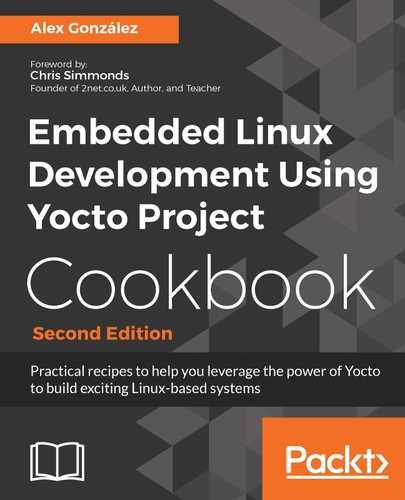We will build a static library, libhelloworld, from two source files, hello.c and world.c, and use it to build a hello world application. The source files for the library are presented here. The following is the code for the hello.c file:
char * hello (void)
{
return "Hello";
}
This is the code for the world.c file:
char * world (void)
{
return "World";
}
To build the library, follow these steps:
- Configure the build environment:
$ source /opt/poky/2.4/environment-setup-cortexa9hf-neon-poky-linux-gnueabi
- Compile and link the library:
$ ${CC} -c hello.c world.c
$ ${AR} -cvq libhelloworld.a hello.o world.o
- Verify the contents of the library:
$ ${AR} -t libhelloworld.a
The application source code is presented next:
- For the helloworld.c file, the following is the code:
#include <stdio.h>
#include "helloworld.h"
int main (void)
{
return printf("%s %s
",hello(),world());
}
With the helloworld.h header file being the following:
#ifndef HELLOWORLD_H #define HELLOWORLD_H char * hello (void); char * world (void); #endif
- We now build it indicating where to find the static library (inside libs/) and the include file (inside inc/) to the compiler:
$ ${CC} -o helloworld helloworld.c -l helloworld -L libs/ -I inc/
- We can check which libraries it links with using readelf:
$ readelf -d helloworld
Dynamic section at offset 0x534 contains 24 entries:
Tag Type Name/Value
0x00000001 (NEEDED) Shared library:
[libc.so.6]
